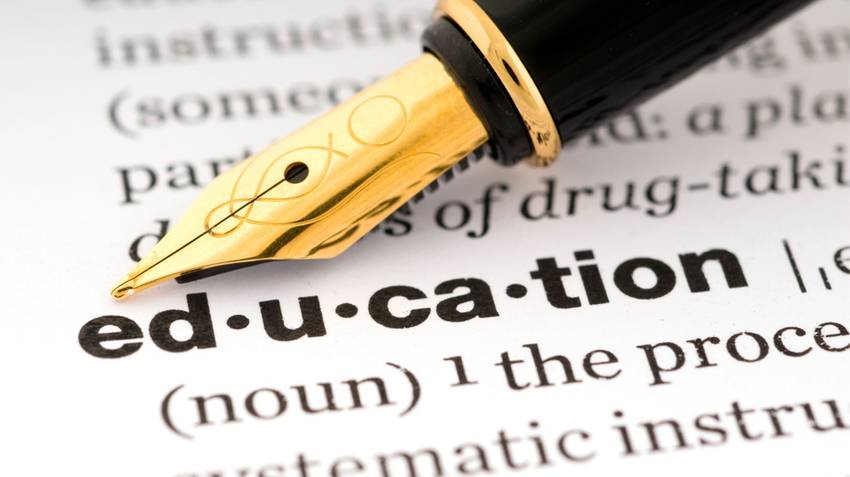We Malaysians are always quick to complain when something is to our distaste. The education system, for example, is a frequent target of these discussions.
The common complaint is that it focuses too much on memory work and regurgitation. That it is too exam-oriented and ignores critical thinking. That we’re only taught to be photocopy machines and are, therefore, being spoon-fed instead of actively learning. You’ll often hear many dismissing the system as we believe that it puts us as a handicap, and does not fully develop our thinking skills.

Formats, formats, it’s all about formats.
My favourite example of this is Pendidikan Moral, a core subject that is dedicated completely to memorizing 36 moral definitions. Last year, there was an uproar during SPM 2013 when the exam structure was changed—without prior notification—to be more open-ended.
Now, ask any student in upper secondary and they will tell you that the marking scheme of the moral paper is very rigid; you have to answer in a very specific technique otherwise you’ll lose a lot of marks. Theoretically then, the change should’ve made things easier due to the lack of structure. However, it ended up being the total opposite. I found myself struggling to complete the questions, and became rather anxious when I realized that I didn’t know how to answer the questions other than what I have been taught, so I ended up answering in a format similar to the one I’ve learned.
Thankfully, everything worked out—I scored an A for the paper.
Granted, the change was sudden and would’ve definitely benefitted from an earlier warning, but the fact that students were left absolutely mortified by an open-ended question paper says quite a lot about our education system. Just within this decade, we’ve scrapped PPSMI, abolished a public exam, and implemented a newer and more holistic (or so they claim) system in replacement. While we should always welcome changes, it also makes me wonder if we’re too quick to replace and amend, thus causing more damage to an already faulty system.
But then again…
Yes, certain subjects are about memorizing hard facts. Yes, the marking scheme can often be rigid and unforgiving. Yes, it is ridiculous—even condescending—that we’re reading a novel that is barely a hundred pages long for English. But let us not forget that the curriculum also includes application subjects like Additional Mathematics and Physics (surely you can’t memorize how to differentiate an equation?) and that it isn’t all about memorizing things.
As a student, that will always be our first instinct to do so, because it is the impression of what the system gives us. Don’t get me wrong, our curriculum demands a significant amount of discipline. It takes a lot to sit down for hours at a time and memorize the entire SPM syllabus. I honestly salute you if you are capable of doing that, because I can’t.
To me, memorizing is taking the easy way out as it doesn’t require you to analyze and ponder why the plasma membrane is semi-permeable. Or why E=mc^2. You do not learn through storing facts in your brain and regurgitating them during exams, we all already know that. So don’t do it. Take the initiative to actually learn our syllabus—and I say learn, not memorize—because once you actually gain an understanding, you will benefit from it.
And you will realize that we actually do learn more than we think we do. That being said, while the current system did sometimes leave me overwhelmed, I am also thankful that it instilled that strict discipline and focus in me to study in order to do well. It leaves us with qualities that will aid us, one way or another, when we leave the comforts of high school and venture into the real world.
So, basically…
Yes, I do agree that our system can often be flawed, and a lot of valid things do need to be addressed. Our curriculum isn’t for everybody, and those who can’t catch up are often left at a disadvantage. We could definitely benefit from more practical learning—a community service requirement, for example, instead of an exam paper that measures our supposed morality—and components that encourage independent thinking as well.
I truly believe, that as long as we put a genuine effort to continually improve—improve, not replace—we will eventually find a solution that manages to tick all the boxes.
Perhaps we aren’t at the forefront of education just yet, but don’t condemn the system. Because even if it isn’t perfect, it still offers us something. At the end of the day, we will still have much to gain.
Xin Ying was a science student, but has always been an artist at heart. After her SPM, she decided to pursue foundation in media studies at IACT College under scholarship. She hopes to have a career in advertising, writing and blogs frequently.



